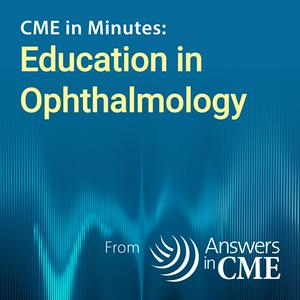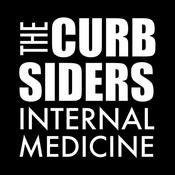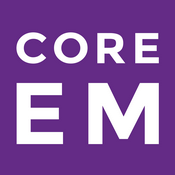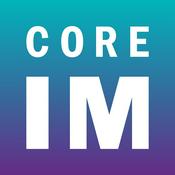20 episodes
A Shared Vision on DME Management: Improving Outcomes With Long-Acting Anti-VEGF Agents
2026/2/12 | 16 mins.Please visit answersincme.com/YMM860 to participate, download slides and supporting materials, complete the post test, and get a certificate. Presented by Nitish Mehta, MD; and Sarwar Zahid, MD. In this activity, experts in diabetic retinopathy discuss long-acting anti-VEGF agents and strategies to improve outcomes for patients with diabetic macular edema (DME). Upon completion of this activity, participants should be better able to: Recognize factors that contribute to patients' treatment burden with intravitreal anti-VEGF therapies for diabetic macular edema (DME); Assess the clinical profiles of long-acting intravitreal anti-VEGF agents for DME; and Recommend individualized strategies to enhance long-term treatment outcomes for patients with DME.Sheilagh M. Maguiness, MD, FAAP / Elizabeth Vainder, MD, FAAP - Escalating Atopic Dermatitis Treatment in Pediatric Patients With Confidence: What Do the Guidelines Tell Us?
2025/12/10 | 18 mins.Please visit answersincme.com/RTS860 to participate, download slides and supporting materials, complete the post test, and get a certificate. In this activity, a pediatrician and a pediatric dermatologist discuss strategies for optimizing biologic treatment for moderate to severe atopic dermatitis (AD). Upon completion of this activity, participants should be better able to: Recognize when treatment escalation to systemic therapy is warranted in pediatric patients with atopic dermatitis (AD); Select the optimal biologic for a given pediatric patient with moderate to severe AD; and Outline strategies to optimize biologic treatment in pediatric patients with moderate to severe AD. This activity is intended for US healthcare professionals only.Manjot K. Gill, MD, MS, Steven Ferrucci, OD, FAAO - Driving Diagnosis and Navigating the Role of Anti-VEGF Therapies in Managing Retinal Vein Occlusion
2025/11/13 | 16 mins.Please visit answersincme.com/SYV860 to participate, download slides and supporting materials, complete the post test, and obtain credit. In this activity, two experts in retinal vein occlusion (RVO) discuss diagnosis and anti-VEGF treatment of the condition. Upon completion of this activity, participants should be better able to: Explain the rationale for exploring longer-acting anti-VEGF treatment for patients with RVO; Recognize the importance of early diagnosis to address the burden of RVO; and Propose optimized, patient-centered treatment plans for the multidisciplinary management of patients with RVO.Asim V. Farooq, MD, Erica L. Mayer, MD, MPH - Ocular Safety in Breast Cancer Care: What Eye Clinicians Need to Know About Novel Oral Endocrine Therapies
2025/11/06 | 18 mins.Please visit answersincme.com/XCG860 to participate, download slides and supporting materials, complete the post test, and obtain credit. This educational activity brings together leading experts in ophthalmology and oncology to explore clinical strategies for managing ocular adverse events associated with a novel class of therapies for advanced breast cancer: the oral selective estrogen receptor degraders (SERDs). Faculty will share key insights and practical guidance on identifying and managing common ocular side effects—particularly photopsia and dry eye—with the goal of enhancing patient care and improving quality of life for individuals navigating survivorship with advanced breast cancer. Upon completion of this activity, participants should be better able to: Recognize the implications of using oral SERDs in HR-positive, HER2-negative breast cancer for ophthalmic practice; Describe the ocular toxicities associated with oral SERDs used in breast cancer treatment; and Apply multidisciplinary strategies to facilitate the detection and management of ocular toxicities in patients receiving oral SERDs.Priya Vakharia, MD - The Long View in Neovascular Age-Related Macular Degeneration: Practical Insights on Long-Acting Anti-VEGF Treatment
2025/9/03 | 18 mins.Please visit answersincme.com/XWJ860 to participate, download slides and supporting materials, complete the post test, and obtain credit. In this activity, a retina expert discusses the role of long-acting anti–vascular endothelial growth factor (VEGF) therapy in neovascular age-related macular degeneration (nAMD). Upon completion of this activity, participants should be better able to: Recognize the rationale for long-acting anti-VEGF therapy in nAMD; Select the optimal long-acting anti-VEGF therapy for individual patients with nAMD; and Integrate practical strategies to enhance the clinical implementation of long-acting anti-VEGF therapy in patients with nAMD.
More Health & Wellness podcasts
Trending Health & Wellness podcasts
About CME in Minutes: Education in Ophthalmology
Get answers in 25 minutes or less from world-class experts and earn CME/CE credit with CME in Minutes: Education in Ophthalmology by Answers in CME. Benefit from digests of latest advancements, thoughtful case studies, and nuanced perspectives. Inspiring and engaging programs designed for busy healthcare professionals to cover the diagnosis, treatment, follow-up, and clinical management of conditions in ophthalmology. Earning your CME/CE credit has never been faster or easier. Download the URL for each individual program to request continuing education credit or access the slides.
Podcast websiteListen to CME in Minutes: Education in Ophthalmology, On Purpose with Jay Shetty and many other podcasts from around the world with the radio.net app

Get the free radio.net app
- Stations and podcasts to bookmark
- Stream via Wi-Fi or Bluetooth
- Supports Carplay & Android Auto
- Many other app features
Get the free radio.net app
- Stations and podcasts to bookmark
- Stream via Wi-Fi or Bluetooth
- Supports Carplay & Android Auto
- Many other app features


CME in Minutes: Education in Ophthalmology
Scan code,
download the app,
start listening.
download the app,
start listening.


































